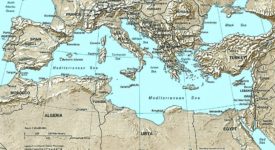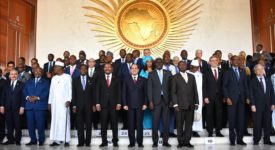Roderick Parkers (The Swedish Institute of International Affairs)
For 25 years, EU citizens have been led to think of migration as a part of globalization. Migration has become a symbol of triumph of economic interconnectedness over territorial order. And that is why many Europeans simply perceive the influx of immigrants and refugees as a continuation of this process – a result of a misled effort to erase state borders (e. g. the Schengen area) and of international anarchy caused by the weakening of Western states’ power.
In many Member States, libertarian and protectionist ideas find fertile ground at the expense of the support of free movement of persons. One typical example is the British Eurosceptic party UKIP, whose adherents would prefer a complete closure of the United Kingdom’s borders. Similar tendencies can also be found in France while its neighbor, Italy, is threatening to leave the Schengen area. Is this crisis of the European migration policy really a direct implication of the process of globalization and international anarchy? Another explanation is at hand – the emergence of de-globalization, i.e. the general trend of reintroduction of national borders, characterized by higher or lower intensity of international communication.
In this period, it seems that Europe has failed in managing migration policy. The effort to solve the immigration problems without enabling the migrants to co-participate in state building will hardly lead to sufficient results. Representative democracy cannot inherently function if a significant part of the population is excluded from its decision-making processes. Moreover, the Europeans have, due to their negative approach, interrupted the deepening bond between globalization and the advancement of liberal democracy around the world.
Instead of sustaining traditional nation-states, the EU should therefore focus on the creation of a form of democracy based on cooperation and practical solutions of problems. Principles like support of immigration of highly qualified workers into the EU or trans-border communication will surely help European economy more than protectionism. Additionally, if we are not capable of giving space in public discussions to all members of the society, we lose the opportunity to effectively solve our everyday problems. In other words, to deny the pursuit of liberalization means to limit our own freedoms.
(The study can be downloaded here)







